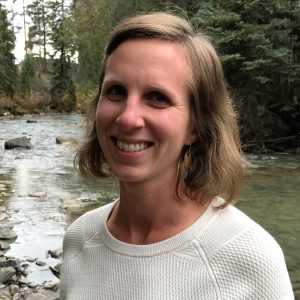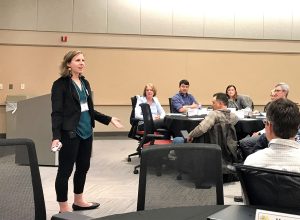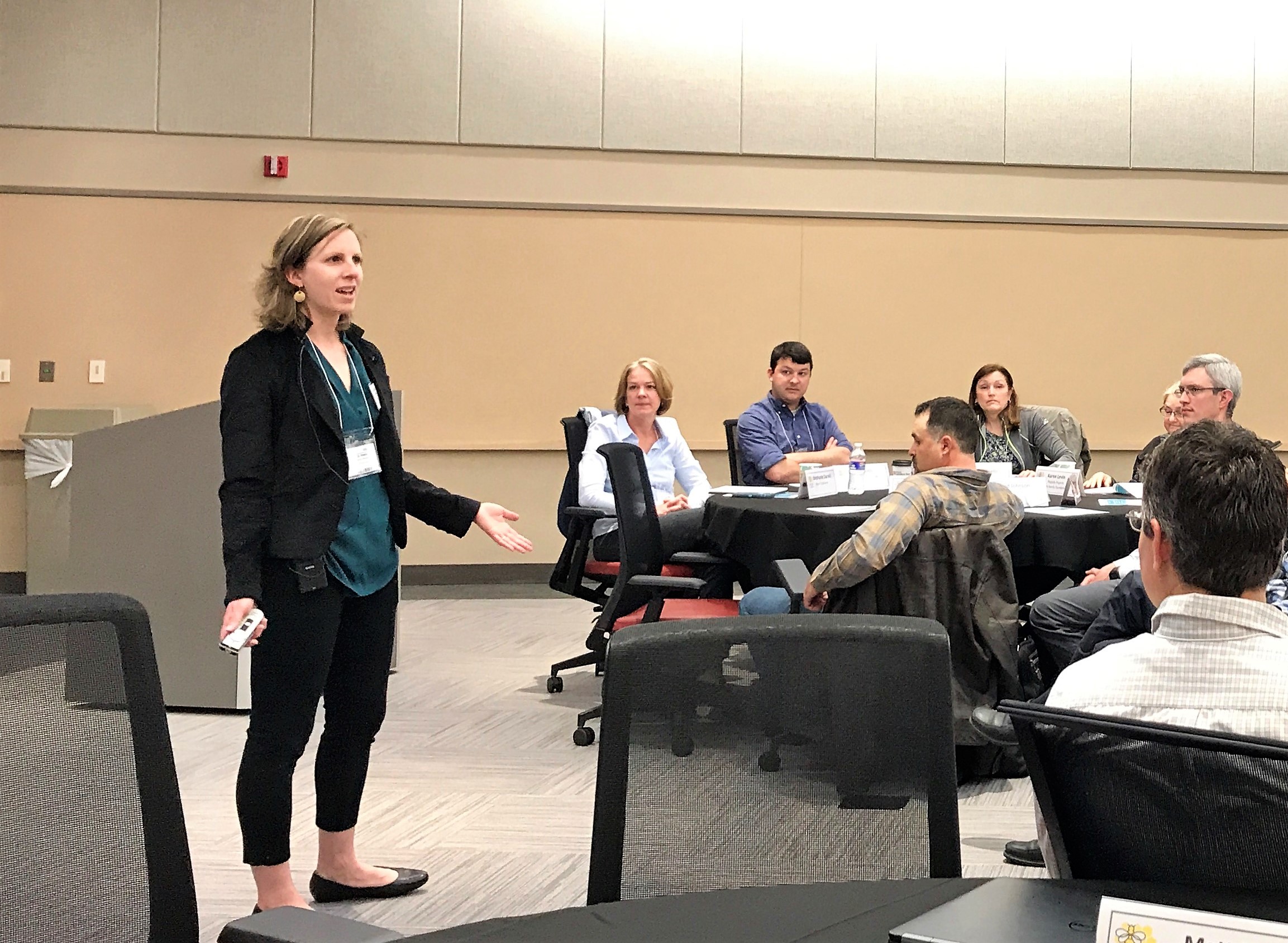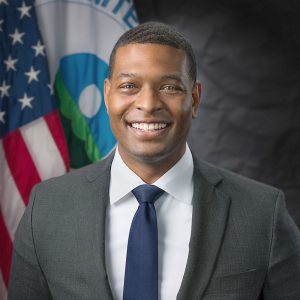Q&A with Keystone’s Julie Shapiro
 Julie Shapiro has worked for 15 years in the environmental and natural resources field as a facilitator, mediator, and educator. At Keystone Policy Center, Shapiro has led a diverse array of projects, including the Honey Bee Health Coalition and Keystone’s work around CRISPR and other emerging genetic technologies.
Julie Shapiro has worked for 15 years in the environmental and natural resources field as a facilitator, mediator, and educator. At Keystone Policy Center, Shapiro has led a diverse array of projects, including the Honey Bee Health Coalition and Keystone’s work around CRISPR and other emerging genetic technologies.
Shapiro, who holds a Master’s degree in environmental studies from the University of Colorado at Boulder and Bachelor’s degrees in geosciences and English from Williams College, also worked as a science educator and policy researcher prior to joining Keystone in early 2008.
* * *
Q: What is so appealing for you about Keystone’s mission and approach?
Julie Shapiro: Throughout my time with Keystone, I have worked on a wide range of issues and projects. Every policy challenge that we work on is an opportunity to engage with a diversity of views and expertise. When I approach a project, whether it’s brand new or long-running, I’m excited by the prospect of finding collaborative solutions and bringing people together to learn from each other, reach a common goal, and establish a civil discourse.
Q: We often talk about reaching “common higher ground” as part of Keystone’s work. What do you see as essential to realizing that idea at the core of Keystone’s mission?
JS: One of the most important things we can do is provide the people around the table with the perspectives they need to have a better conversation about issues. Throughout a number of projects I’ve worked on, Keystone has done an excellent job using field trips, innovative facilitation techniques, and other experiences to draw out different perspectives and help people explore potential solutions and new ways of thinking.
Q: What are some notable examples of this process in action?
JS: We did a series of field tours and workshops with beef producers and the beef supply chain in 2013 and 2014. The purpose of these specific events on sustainable beef wasn’t necessarily to solve the challenges producers and the supply chain face, but rather to provide stakeholders along the supply chain with a better, more robust understanding of their partners’ perspectives. Through the workshops and other dialogues we facilitated, it was remarkable to see people experience the viewpoints of people on the ranch and feedlots and the processing line. What has been the most rewarding about that work has been seeing how the engagement Keystone fostered helped to build relationships and connections that have endured and shaped conversations to-date.
We’ve seen similar evolutions in thinking in our work fostering Field to Market, which is now its own independent organization, in mine cleanup efforts, in gathering public and stakeholder input on wildlife conservation strategies, in developing recommendations around oil and gas planning on public lands, and in the first year of our work with CRISPRcon and other dialogues around emerging genetic technologies.
That’s really rewarding.
Q: Throughout its history, Keystone has often worked on the cutting edge of issues. What are some new or upcoming areas where you’re excited to bring Keystone’s mission to bear upon?
JS: As I mentioned, Keystone is engaging right now with people working in and around emerging genetic technologies, like CRISPR. We’re bringing together diverse groups of stakeholders to have discussions that look beyond technical issues and to dive into some of the broader considerations of the implications of genetic editing for society. These include considerations of equity, ethics, transparency, governance, safety, and more.
Keystone has been engaged with these issues dating back to the 1990s, but our recent work has really focused on looking at this newest generation of tools from a multidisciplinary standpoint.
We know these technologies have the potential to shape the direction our society is heading. Keystone has the tools to help people understand new, diverse perspectives. We know from history that issues related to genetics can be so charged, and we need to find better ways to discuss what society wants and not merely what it can do—and, for that matter, what should it do with these revolutionary tools.
Q: What outcomes or ongoing efforts are you most proud of from your time with Keystone?
 JS: One of the most interesting projects I have been involved in has been the Honey Bee Health Coalition. It’s a diverse coalition of beekeepers, farmers, scientists, agricultural companies, NGOs, and others working to find collaborative strategies to support honey bees and pollinators.
JS: One of the most interesting projects I have been involved in has been the Honey Bee Health Coalition. It’s a diverse coalition of beekeepers, farmers, scientists, agricultural companies, NGOs, and others working to find collaborative strategies to support honey bees and pollinators.
The Coalition has really succeeded in providing beekeepers, producers, and others tools and recommendations that touch on a wide range of ways to support bee health. For example, the Coalition developed and launched the Tools for Varroa Management Guide, which has really helped beekeepers confront a particularly nasty parasite that has been one of the biggest drivers of recent colony losses. We’ve similarly been working on guidance and training for crop producers and crop advisers on issues like pesticide use and habitat establishment.
I’ve also been excited about another one of the Coalition’s recent efforts, the Bee Integrated Demonstration Project. The project, which has been running for nearly a year, is particularly exciting because it not only embodies the collaborative spirit of the Coalition, but also Keystone’s mission. The Bee Integrated Demonstration Project has brought together beekeepers and producers to work together and show how best practices can be used together in agricultural landscapes to support bee health.
Q: What advice would you give to leaders in the public, private, and NGO sectors to avoid some of the pitfalls or challenges that can lead to gridlock or seemingly intractable problems?
JS: We’re in an age of such polarization where we assume that the people we disagree with are just wrong. We really need to figure out how to build bridges and see things from other sides. There’s value in taking the time to find shared interests, recognize others’ expertise, and learn to see issues from others’ perspectives. This requires empathy, compassion, and curiosity from all who come to the table.
These strategies take time, but they’re ultimately worth it.







 Login
Login



